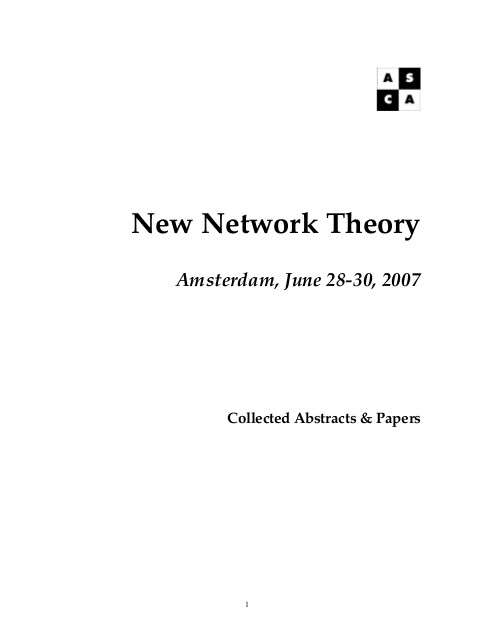Mik journal, Nr. 3: Art and Politics: Case-Studies from Eastern Europe (2007) [English/Lithuanian]
Filed under journal, proceedings | Tags: · art, art criticism, art history, censorship, communism, cultural resistance, democracy, eastern europe, political art, politics, post-communism, power, totalitarianism

“The third volume of the Art History & Criticism journal includes articles based on the proceedings of the international conference Art and Politics: Case-Studies from Eastern Europe organised by the Art Institute, Vytautas Magnus University in 26-27 October 2006. Thirty scholars – from Lithuania, Latvia, Estonia, Poland, Czech Republic, Croatia, Romania, France, Germany, the UK, and the USA – presented papers focused upon one aspect of the European history and culture, namely the former Eastern bloc and its Soviet past as well as quotidian post-Soviet reality. Participants of the Kaunas conference discussed one of the most challenging issues of the field – art and politics.” (from Preface)
Meno istorija ir kritika / Art History & Criticism journal
Issue: Menas ir politika: Rytų Europos atvejai / Art and Politics: Case-Studies from Eastern Europe, 2007
Editor-in-chief: Vytautas Levandauskas
Publisher: Vytauto Didžiojo universitetas / Vytautas Magnus University, Kaunas, Lithuania
ISSN 1822-4555
232 pages
conference programme (PDF)
publisher
PDF (updated on 2014-9-1)
Other issues
IACAP: The Computational Turn: Past, Presents, Futures? conference proceedings (2011)
Filed under proceedings | Tags: · code, computational turn, computing, cyberwar, digital humanities, ethics, internet of things, philosophy, philosophy of computing, philosophy of technology, social computing, software, sousveillance, surveillance, technology, ubiquitous computing

In the West, philosophical attention to computation and computational devices is at least as old as Leibniz. But since the early 1940s, electronic computers have evolved from a few machines filling several rooms to widely diffused – indeed, ubiquitous – devices, ranging from networked desktops, laptops, smartphones and “the internet of things.” Along the way, initial philosophical attention – in particular, to the ethical and social implications of these devices (so Norbert Wiener, 1950) – became sufficiently broad and influential as to justify the phrase “the computational turn” by the 1980s. In part, the computational turn referred to the multiple ways in which the increasing availability and usability of computers allowed philosophers to explore a range of traditional philosophical interests – e.g., in logic, artificial intelligence, philosophical mathematics, ethics, political philosophy, epistemology, ontology, to name a few – in new ways, often shedding significant new light on traditional issues and arguments. Simultaneously, computer scientists, mathematicians, and others whose work focused on computation and computational devices often found their work to evoke (if not force) reflection and debate precisely on the philosophical assumptions and potential implications of their research. These two large streams of development – especially as calling for necessary interdisciplinary dialogues that crossed what were otherwise often hard disciplinary boundaries – inspired what became the first of the Computing and Philosophy (CAP) conferences in 1986 (devoted to Computer-Assisted Instruction in philosophy).
Since 1986, CAP conferences have grown in scope and range, to include a bewildering array of intersections between computation and philosophy as explored across a global range of cultures and traditions. In keeping with what has now become a significant tradition, IACAP‟11 will accept presentations across this array and range. At the same time, in order to recognize and celebrate the 25th anniversary of the CAP conferences, we specifically encourage submissions that include attention to the past, present(s), and possible future(s) of their foci as expressions of this computational turn.
International Conference of Computing and Philosophy (IACAP)
Organizing Chair: Charles Ess
Program Chair: Ruth Hagengruber
Aarhus University, 4-6 July 2011
336 pages
New Network Theory: Collected Abstracts and Papers (2007)
Filed under proceedings | Tags: · actor-network theory, aesthetics, assemblage, internet, locative media, network culture, networks, social movements, web, web 2.0

On 28 – 30 June 2007, the Institute of Network Cultures and Media Studies, University of Amsterdam and the Amsterdam School for Cultural Analysis, organized the international conference New Network Theory. The object of study has shifted from the virtual community and the space of flows to the smart mob. When the object of study changes, so may the distinctions that dominate, particularly the schism between place-based space and place-less space, both organized and given life by networks. New Network Theory explored contemporary network theory that suits and reflects the changes to the objects of study that come to define our understandings of network culture – a post-Castellsian network theory, if you will, that takes technical media seriously.
themes: network theory, the link, locative media, networks and subjectivities, networking and social life, art and info-aesthetics, actor-network theory and assemblage, networks and social movements, mobility and organisation, anomalous objects and processes, and the global and the local.
speakers: Katy Börner, Wendy Chun, Noshir Contractor, Florian Cramer, Rob Stuart, Jean-Paul Fourmentraux, Matthew Fuller, Valdis Krebs, Olia Lialina, Noortje Marres, Anna Munster, Warren Sack, Alan Liu, Ramesh Srini-vasan, Tiziana Terranova, Siva Vaidhyanathan, and many others.
PDF
Three additional papers (Verheij, Cramer, Goriunova)

